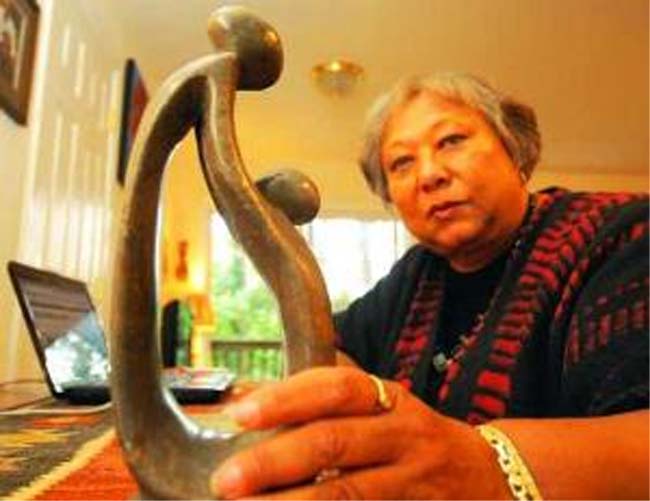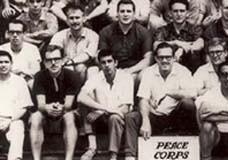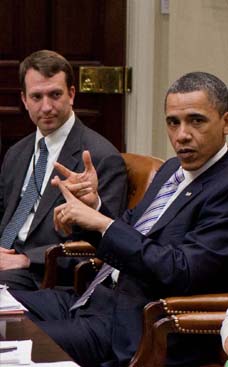
When the Peace Corps offered her a spot as a pediatrician in Malawi, the organization seemed to be filled with "young, idealistic people who want to save the world," most of them just out of college, and she was the eldest in her group. "They go teach or farm or fish, but they don't come with a whole lot of skill," she said. "I came with a lot of skill." She learned the language, Chichewa, and lived with a poor couple and their 13-year-old daughter who was physically disabled, and bedridden. Shorter cared for her. "She was the kind of child I was used to taking care of," Shorter said. When she became proficient in the language, Shorter was soon placed at Zomba General Hospital in Malawi. There, she served as chief of pediatrics, she said. "I was the only pediatrician in the whole hospital. There were only three doctors for hundreds and hundreds of patients. One was a German internist, and Japanese surgeon. That was it." Shorter saw about 400 patients each day, she said. She also started a handicapped clinic for disabled children. "I had to," Shorter said. "You had to do everything." Because there was no running water, she used bottled water to wash her hands between patients. She worked in a village where natives had no electricity and no running water, though she and other doctors lived on a road with these luxuries. She carried her supplies to walk the mile-long trek to the hospital each day. The stench of excrement in the hospital was so excruciating that she had her friends send her small vials of perfume so she could smear fragrance above her upper lip every morning. "The smell was what would bring you to your knees," Shorter recalled. "So I smelled something good. But once you're in there, you acclimate yourself to the smell," she said. "And there's nothing you can do about it." Her departure was abrupt. In a nearby area, a German doctor was killed after he apparently uncovered a smuggling ring in the hospital he worked in, and found that people had been stealing surgical equipment, Shorter recalled. "He was going to report them, and they killed him. He had all new equipment delivered, and the next day it was gone," she said. A week later, her drugs in stock went missing. "I was going to report it, but I called the Peace Corps to let them know, and they called the German embassy," Shorter recalled. She was ordered to leave, she said. "They felt my life was in danger." The Peace Corps accommodated her at a safe house in another town, she said.
Hazle Shorter was 57 when she joined the Peace Corps for two years in 1998 working at Zomba Central Hospital in Zomba, Malawi where she delivered many babies
Montclair pediatrician served in Malawi saving babies and mothers
Thursday, October 6, 2011
Last updated: Thursday October 6, 2011, 2:02 AM
BY TANYA DROBNESS
OF THE MONTCLAIR TIMES
The Montclair Times
Caption: Dr. Hazle J. Shorter gave away many mementos from her two years in the Peace Corps in Africa, but she keeps a few, including a carved stone figure of a mother and child from Zimbabwe. It resonates with her because of her profession: 'As a pediatrician, [I know] the patient is really the parent.' The quilt was made for her by the village women in Malawi. When Shorter's fellow Peace Corps volunteers saw it, they wanted quilts too and the women's business grew so that they were able to become self-sustaining. Photo: Adam Anik
The garbage dump was outside the hospital's newborn nursery.
When flies got in through the open, screenless windows, they made their way into the incubators, and ate the babies' eyes.
When Hazle Shorter saw this, she took it up with the Zomba city government. It took two years for officials there to have the dump removed, just before Shorter's time in the Peace Corps was up.
But she got it done. She couldn't stand back and not do anything.
Shorter was 57 when she joined the Peace Corps for two years in 1998. And although at the time she was divorced with three grown sons, it was something she had always wanted to do.
And her activism seemed to come naturally.
When Shorter, a pediatrician, worked at Zomba Central Hospital in Zomba, Malawi, she delivered many babies. Sometimes, just days later, mothers brought back their babies with abdomens hard as rocks, Shorter recalled. They had developed necrotizing enterocolitis, a disease that can be common in premature babies, in which there is tissue death in the bowel.
What was the cause?
Shorter soon came to realize it. Many women there were given petroleum jelly freebies, receiving them in little packages. They were happy to be getting something for nothing, Shorter said. When they smeared the substance on their babies, including the navel area, it would become susceptible to infection, she said. Bacteria would make its way into the abdomen. "There is no cure, and these babies would die," she said.
Shorter urged Malawi pharmaceuticals to cease its distribution, and arranged to have a billboard posted showing a mother and infant with its abdomen exposed, and the universal "no" sign emblazoned over the image, she said.
And that wasn't all.
"Women in Malawi don't read or write, but they understand music and jingles and like to be taught that way … Then they made a jingle to sing the message on the radio all day so mothers would know never to put Vaseline [on]. And they did it," Shorter said. "That was one of my best moments as a pediatrician."
It was too bad, Shorter said, that she couldn't forever maintain the change she brought.
"The sad thing was the Peace Corps, unlike other organizations, does not have a program where … programs developed are not sustained," Shorter said.
Her motivation to join had come several years earlier.
A major inspiration transpired while she was in medical school at Howard University. When President Kennedy died, Shorter was pregnant with her first child. His death prompted her to make a promise to herself, that one day she would go into the Peace Corps.
"[It was] kind of like a tribute to John F. Kennedy. He had encouraged people to give back, to be more than just themselves, but to help others. I felt being in medical school, it was my natural inclination to take care of people," Shorter said.
She went on to work in the South Bronx in pediatric child development, caring for children with disabilities.
When the demands of practicing medicine as a single parent became too strained, she joined the pharmaceutical industry and was a research physician. "It hurt my heart to give up practice, but I did it because I felt it was important to be there for my sons," she said. She moved up the ladder in the industry, and became vice president of clinical research at her company.
But when her father died when she was 56, Shorter resigned. She said her father had been an atomic physicist who helped build the atomic bomb. He was her role model, and had encouraged her to become a pediatrician.
At that point, she said it was time for her to return to practicing medicine, "because that would fulfill my promise to John F. Kennedy, and I also fulfilled my love for my father."
When the Peace Corps offered her a spot as a pediatrician in Malawi, the organization seemed to be filled with "young, idealistic people who want to save the world," most of them just out of college, and she was the eldest in her group. "They go teach or farm or fish, but they don't come with a whole lot of skill," she said. "I came with a lot of skill."
She learned the language, Chichewa, and lived with a poor couple and their 13-year-old daughter who was physically disabled, and bedridden. Shorter cared for her. "She was the kind of child I was used to taking care of," Shorter said.
When she became proficient in the language, Shorter was soon placed at Zomba General Hospital in Malawi. There, she served as chief of pediatrics, she said. "I was the only pediatrician in the whole hospital. There were only three doctors for hundreds and hundreds of patients. One was a German internist, and Japanese surgeon. That was it."
Shorter saw about 400 patients each day, she said. She also started a handicapped clinic for disabled children. "I had to," Shorter said. "You had to do everything."
Because there was no running water, she used bottled water to wash her hands between patients.
She worked in a village where natives had no electricity and no running water, though she and other doctors lived on a road with these luxuries. She carried her supplies to walk the mile-long trek to the hospital each day.
The stench of excrement in the hospital was so excruciating that she had her friends send her small vials of perfume so she could smear fragrance above her upper lip every morning. "The smell was what would bring you to your knees," Shorter recalled.
"So I smelled something good. But once you're in there, you acclimate yourself to the smell," she said. "And there's nothing you can do about it."
Her departure was abrupt.
In a nearby area, a German doctor was killed after he apparently uncovered a smuggling ring in the hospital he worked in, and found that people had been stealing surgical equipment, Shorter recalled.
"He was going to report them, and they killed him. He had all new equipment delivered, and the next day it was gone," she said.
A week later, her drugs in stock went missing.
"I was going to report it, but I called the Peace Corps to let them know, and they called the German embassy," Shorter recalled. She was ordered to leave, she said.
"They felt my life was in danger." The Peace Corps accommodated her at a safe house in another town, she said.
And just like that, the adventure was over.
She remembers that when she returned to the United States, she couldn't talk about her experience. "I was devastated by the poverty," she said. "The homeless of the United States have more than the people of Malawi."
Shorter said that a family of four in Malawi might earn $100 a year. They grow enough food to eat for the day, she said.
The staple diet for the villagers was corn, ground to a type of cornmeal.
"It's like grits, except we eat it hot, with some butter or sugar or salt or cheese. They just eat it plain, and they eat it cold," she said. "If they are lucky they might have shredded lettuce or shredded tomato … or a baby bird." A delicacy there, she said, is rats on a stick.
"They are born without any shoes, just like everybody, but they live their whole lives without shoes … They walk in their feet from the day they're born until they die."
Contact Tanya Drobness at drobness@montclairtimes.com.
















